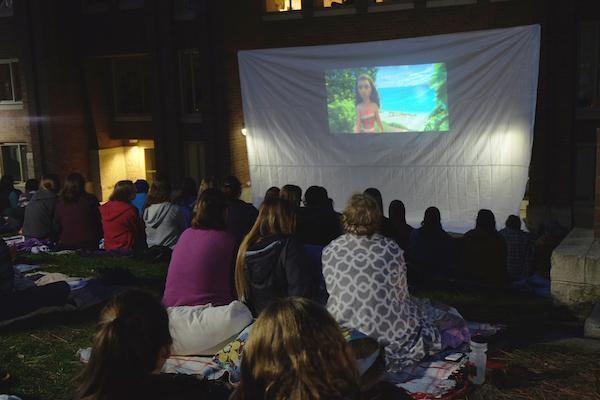Whitworth students have no doubt experienced an extensive variety of discussions surrounding the 2016 election and its results. On Facebook, with their friends, with relatives at Thanksgiving. And in the classroom.
We can understand that professors have strong opinions, and the classroom is often a great environment to discuss political issues. However, it is the opinion of this editorial board that professors should only make their political views explicit if it is relevant to the class and if the student asks. Otherwise, it is too easy to turn their position of authority in the classroom into a pulpit.
The desire to share political opinions, especially in this controversial election cycle, is understandable. Politics are a huge aspect of every person’s life, and almost all of the policies discussed by politicians in election season are directly applicable to at least some of us. College campuses are unique and valuable learning environments that are arguably perfect for political discussions and sharing perspectives.
I think it could cause students to feel like they need to think the same as their professors. Every professor is in a position of power and they should not use that to influence students’ political beliefs.”
— Whitworthian survey respondent
We are not saying that political discussions are negative. In fact, political science professors, and arguably others, would be remiss in avoiding the topic. In any field, from English to chemistry to economics, connecting political topics and policies to coursework can be an excellent way of teaching and making classwork relevant to students and current events.
We do think it is a great idea to start discussions about politics and/or the election in class, especially if it can be related to the coursework. Additionally, as one survey respondent suggested, students and professors of the Whitworth community can always further discussions outside the classroom. Problems begin to arise, however, when the professor uses the classroom as an avenue for advancing his or her own political opinions.
Professors have a right to express their political views; however, their expression should never hinder the learning of a student or interfere with a student’s ability to express their own opinions.”
— Whitworthian survey respondent
Consider what might happen if a professor began class with a “rant” against a particular candidate, as several survey respondents claimed their professors did after the election results last month. By making their views immediately obvious, the professor could potentially ostracize any student in the class who disagrees.
Hopefully, students can recognize that their professors have biases, just as students do. But it is much more difficult to recognize that when it comes from an authority figure.
No because they are biased towards a specific economic policy or idea. They express their views so strongly that it changes my perspective of how i see them and it makes me feel uncomfortable.”
— Whitworthian survey respondent
Knowing they are in such disagreement with the professor, students could hesitate to participate in class with alternate perspectives. They could worry that they would be graded differently from other students. Most importantly, they could become concerned that their learning environment is coming from a biased perspective, and that they are not getting a complete education of the issues.
Especially in the Core program, political interludes can be problematic. There is rarely an opportunity for Core students to speak during lecture, especially in 150 and 250. Discussion of where a politician might lie on the ideological scale? By all means, professors should encourage understanding of political systems and ideologies and facilitate educational discussions, especially considering the context of Core.
However, pointed comments about a candidate in a lecture to nearly 200 students is an unnecessary bias that doesn’t allow for discussion of the issues, and instead polarizes students. Core is structured to push students’ ideological beliefs and help them construct their foundational ideas about the world, which often involve politics. However, at a university that preaches inclusivity and acceptance, students should not be isolated by ideas in a classroom where they cannot express their own.
It is of course up to professors to decide how to talk about politics for their own classes and classroom environments. To some extent, we trust Whitworth professors to use discretion to decide what is appropriate and how to use their very influential positions. We also encourage them to consider how vocalizing their opinions, and especially discouraging opposition to their ideas, may affect the students’ learning environment.
Editorials in the “In the Loop” section reflect the majority opinion of the Editorial Board, comprised of five editors.
Contact Katie Shaw, the opinions editor, at kshaw17@my.whitworth.edu









 Spokane?
Spokane?